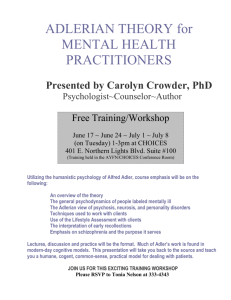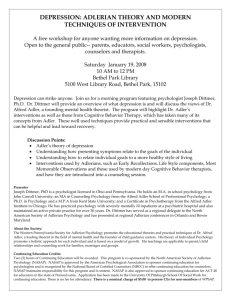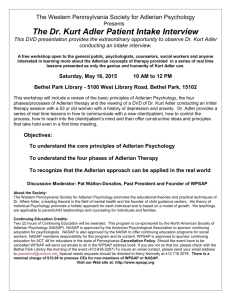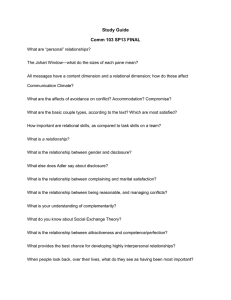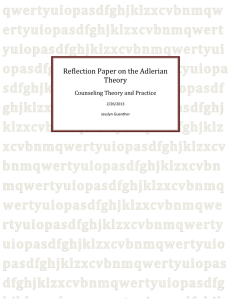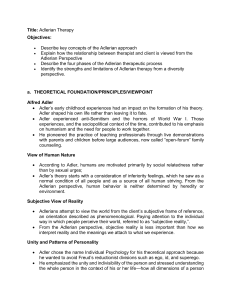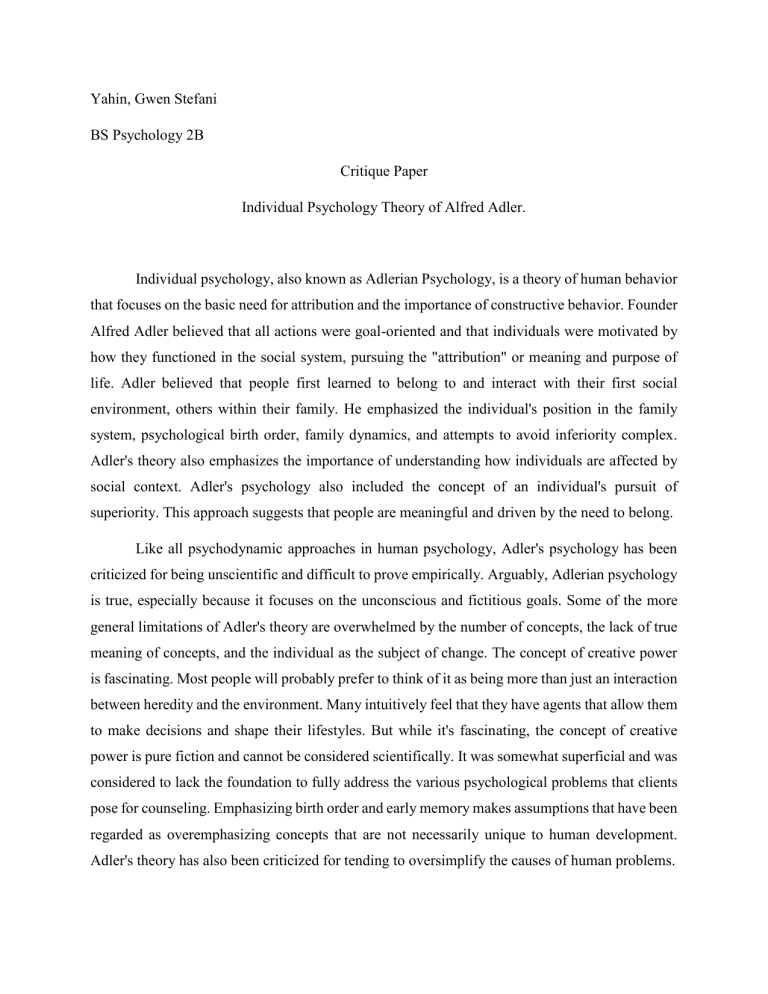
Yahin, Gwen Stefani BS Psychology 2B Critique Paper Individual Psychology Theory of Alfred Adler. Individual psychology, also known as Adlerian Psychology, is a theory of human behavior that focuses on the basic need for attribution and the importance of constructive behavior. Founder Alfred Adler believed that all actions were goal-oriented and that individuals were motivated by how they functioned in the social system, pursuing the "attribution" or meaning and purpose of life. Adler believed that people first learned to belong to and interact with their first social environment, others within their family. He emphasized the individual's position in the family system, psychological birth order, family dynamics, and attempts to avoid inferiority complex. Adler's theory also emphasizes the importance of understanding how individuals are affected by social context. Adler's psychology also included the concept of an individual's pursuit of superiority. This approach suggests that people are meaningful and driven by the need to belong. Like all psychodynamic approaches in human psychology, Adler's psychology has been criticized for being unscientific and difficult to prove empirically. Arguably, Adlerian psychology is true, especially because it focuses on the unconscious and fictitious goals. Some of the more general limitations of Adler's theory are overwhelmed by the number of concepts, the lack of true meaning of concepts, and the individual as the subject of change. The concept of creative power is fascinating. Most people will probably prefer to think of it as being more than just an interaction between heredity and the environment. Many intuitively feel that they have agents that allow them to make decisions and shape their lifestyles. But while it's fascinating, the concept of creative power is pure fiction and cannot be considered scientifically. It was somewhat superficial and was considered to lack the foundation to fully address the various psychological problems that clients pose for counseling. Emphasizing birth order and early memory makes assumptions that have been regarded as overemphasizing concepts that are not necessarily unique to human development. Adler's theory has also been criticized for tending to oversimplify the causes of human problems. Adlerian counseling has been used for many years, but it is not without its weaknesses and limitations. Adlerian therapy does not have a strong supporting research base. There is a lack of clear and solid evidence of the effectiveness of Adlerian counseling. Adler was also very vague in applying his approach to working with clients and his general approach to treatment. The Adlerian approach can help many, but it may not be the best choice for everyone. Adlerian theory involves exploring and confronting memories that can sometimes cause distress and agitation, as early memories focus on how they shape the current problem. REFERENCE: Sperry J., Sperry L. (2020) Individual Psychology (Adler). In: Zeigler-Hill V., Shackelford T.K. (eds) Encyclopedia of Personality and https://doi.org/10.1007/978-3-319-24612-3_1387 Individual Differences. Springer, Cham.
